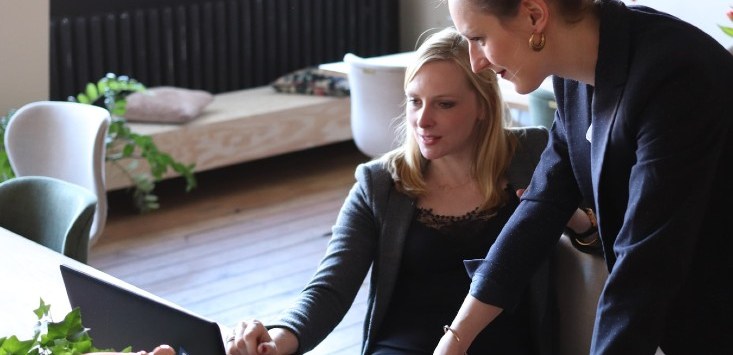
Source: Unsplash/CoWomen.
Almost 50% of women across the world have recently experienced burnout, a new study from Deloitte Global has found.
The report surveyed more than 5000 working women across 10 countries and found that women are experiencing “alarming levels” of stress and burnout at work with more than half of women reporting higher stress levels than 12 months ago, and one third of women saying they have taken time off work to manage their mental health challenges.
The hybrid workplace model has also contributed to women’s anxiety levels, with two thirds of women reporting that this has made them feel shut out of important meetings and decisions.
“While the hybrid way of working presents opportunities — including, if done right, enabling many to maintain the flexibility that remote working can afford, it also creates a risk of exclusion for those not physically present,” the authors wrote.
Is hybrid work working for women? Women @ Work 2022: A Global Outlook shows that many feel excluded in the new world of work. Download a copy today.https://t.co/N5ciOw6k4Z pic.twitter.com/BptCsEtP6E
— Deloitte (@Deloitte) May 6, 2022
The Women @ Work 2022: A Global Outlook study also found that four in 10 women are currently looking for a new job, while roughly the same proportion of women feel they can discuss their concerns in their workplace.
In fact, only 10% of women said they will stay with their current employer for more than five years, while a third said they work for companies that offer flexible working policies.
Most respondents said they feared asking for more flexibility in their work arrangements, believing that it would affect their promotion prospects.
The report also found that rates of harassment and microaggressions from men against women has increased in the past 12 months — up to almost two thirds. Women reported higher rates of unwanted physical advances, repeated derogatory or sexist comments, being talked over and condescended to from male colleagues.
Deloitte believes that ultimately, inclusive employers that support women will secure the most talented cohort of workers.
“Women who work for these companies report far higher levels of engagement, trust, and career satisfaction, and they also plan to stay with their employers longer.”
Last year, the World Economic Forum (WEF) estimated that it would take a further 267 years to close the gender gap in the category of Economic Participation and Opportunity, including jobs and pay.
“Overall income disparities are still only part-way towards being bridged and there is a persistent lack of women in leadership positions, with women representing just 27% of all manager positions,” WEF’s Gender Gap Report 2021 explained.
You can read the full report here.
This article was first published by Women’s Agenda.
Handpicked for you



COMMENTS
SmartCompany is committed to hosting lively discussions. Help us keep the conversation useful, interesting and welcoming. We aim to publish comments quickly in the interest of promoting robust conversation, but we’re a small team and we deploy filters to protect against legal risk. Occasionally your comment may be held up while it is being reviewed, but we’re working as fast as we can to keep the conversation rolling.
The SmartCompany comment section is members-only content. Please subscribe to leave a comment.
The SmartCompany comment section is members-only content. Please login to leave a comment.